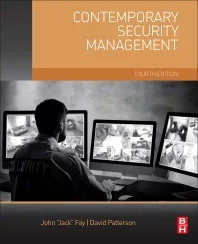7 Factors Delaying Background Screening Times
When hiring to fill a position where education, experience, credibility and even liability are critical, you have every right to know where each candidate stands with regard to the reliability of an application, making background checks critically important. International and domestic background checks can identify applicants and employees who have demonstratedunacceptable behavior for the workplace or falsified their credentials. The background check process can include county, state or national criminal record searches, motor vehicle records, drug testing, prior employment and education verification, license verifications and other investigations that can reveal potential warning signs.
While most background checks can be completed within three days, there are sometimes extraneous factors that can delay the timely completion of a comprehensive screening. As a veteran employment screening professional, I know that in our business you are only as good as your last screening and that time is of the essence. Companies are always looking for speed in the hiring and on-boarding process, and they understand the comprehensive background screening process can exasperate some hiring managers who are befuddled by divergent local county and country regulations, laws and delays.
However, when you look at background investigations that require more time, the reason is likely not a slow moving background screening professional, but rather a variety of extenuating issues that can extend the completion of a search from a few days to several weeks. Background checks require either on-site or online processes, depending on the investigation and the location and availability of local records.
The primary factors that can delay a background check include:
- Inaccurate or Incomplete Applications– An inaccurate social security number, date of birth or name in a job application will delay a background screening. For example, a candidate may be known as Jon but his legal first name is Jonathan. In his job application, he lists his first name as Jon, which is run through social verification systems and does not produce a match. At this point, the investigator must reach out to the client and make sure that they have all the right information, i.e., identifiers, in the application, to ensure that only information tied to that candidate is reported.
- U.S. States and Counties Playing by Unique Rules– While some states and counties are well-staffed and utilize state-of-the-art computerized records, some are plagued by under-staffing and archaic record keeping. If the screening includes a criminal search in one of these areas, it can be further delayed.
- Weather Delays – Although the weather where you are may be mild and sunny, the local courthouse near an applicant’s former residence may be experiencing inclement weather. Flooding, blizzards or power outages that close courthouses can also delay searches. A quality background screening company will keep you informed of any delays so that you understand the status of your search in the background screening process.
- Tardy Education and Employment Sources– Employers and educators are not obligated to get back to a screening professional in a timely manner. If an employer or college or university administrator fails to return phone calls, emails or written correspondence about a candidate, the screening is stuck in slow motion.
- International Challenges– International background screenings are pertinent to organizations in all industries with operations that reach across country borders or with workforces comprised of individuals who may have resided outside of the U.S. at some point. These companies may need to ensure that the employment or educational credentials provided by new hires from other countries are valid, and other times they may want to check on a person’s criminal history.
- Industry advances have moved international screening result times from 45-90 days to generally about 8-16 days. Of course, there are exceptions, but typically a status report can be given 2 to 3 times a week during the screening process with results soon to follow.
- Additional Identifiers– As was widely reported in the news media, Samuel Jackson, a law-abiding 26-year-old man was applying for a job when he was identified as a felon through a background screen. His pre-employment screening report suggested he was a sex offender who had been incarcerated. To avoid this type of mishap that can delay a law abiding person from securing employment, it is important that the background screening company disseminate a broad net which they then should refine with as many identifiers as possible, including date of birth, address history, etc. This practice of researching court dockets and applying additional identifiers takes time; however it strengthens the research so only information related to the candidate being searched is reported. Further, responsible screening professionals should never tell clients they have a ‘possible felony or misdemeanor hit’ before they are 100 percent sure they have the right candidate identified.
- Required Sensitive Information – A date of birth, for example, is a critical additional identifier when researching court dockets pertaining to a similar name of a particular candidate. However, some companies, concerned about the risk around perceived discrimination, are hesitant to collect dates of birth for their candidates. Often times, the clients of background screening companies ask their screeners to obtain such information directly from the candidate. It is not uncommon for an applicant to be suspicious and wary of a background screening professional who calls to ask about their date of birth, which can delay the background while the candidate determines the validity of the request.
When people know that a company stands behind comprehensive background screening, they know that the company cares about their welfare. Applicants who have dubious backgrounds that include reckless acts may ‘self-select’ out of the interviewing process. Applicants and existing employees with clean backgrounds are typically not bothered by the screening process as they appreciate the organization’s commitment to a safe workplace.
Additionally, it is critical to re-screen employees – and contractors – each year. Employees who keep their personal lives private may be involved in activities that could negatively impact your workplace. For example, an employee who joined the company with a clean record five years ago may have been involved in domestic disputes over the past few years. This new information is crucial for an employer as domestic disputes sometimes travel into the workplace. The same applies for contractors.
Background screening is a vital part of this pre-employment foundation. When background screenings are performed, companies see lower employee turnover, less employer liability, higher productivity and a well-qualified workforce. When you are trying to secure the best candidate and protect your organization and its brand, it is critical to screen all applicants, regardless of where the search is conducted. There are challenges to any process, but an experienced and knowledgeable provider can help you receive timely and thorough information about your candidates.
How long have you ever had to wait for a background check? Join the conversation! Leave a comment below, or email Security associate editor Claire Meyer at meyerc@bnpmedia.com.
Looking for a reprint of this article?
From high-res PDFs to custom plaques, order your copy today!






